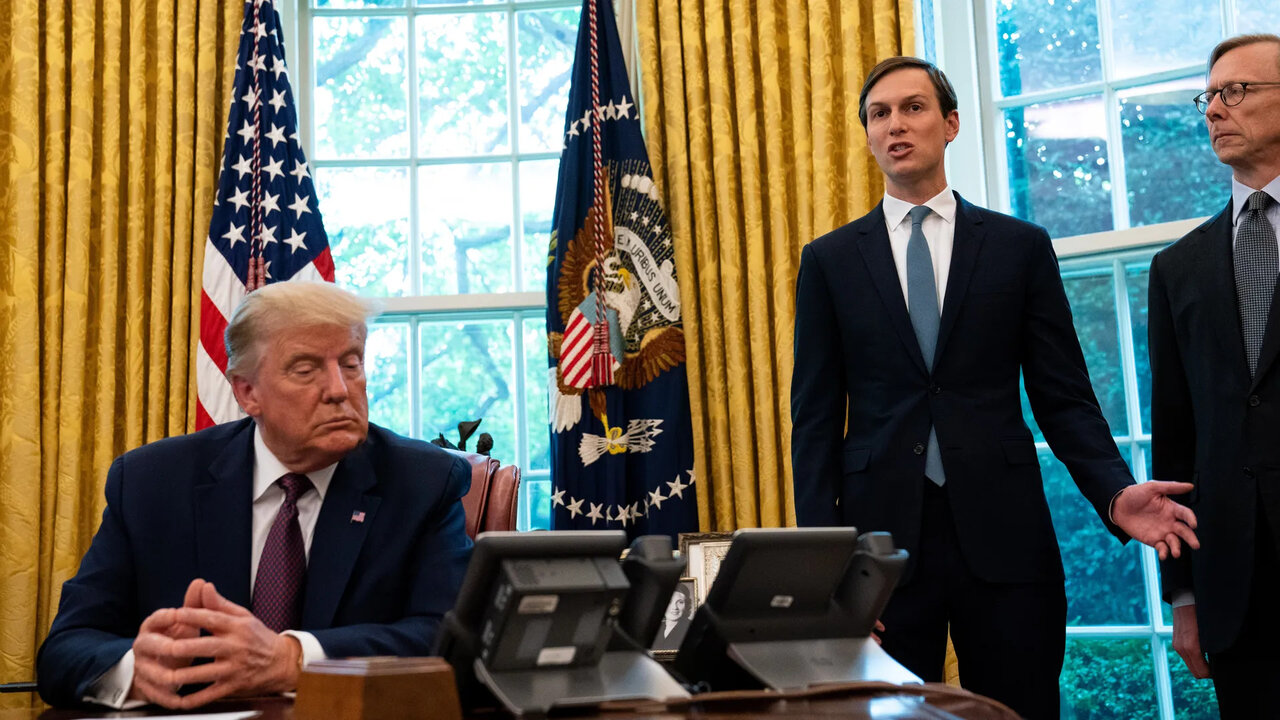INSUBCONTINENT EXCLUSIVE:
as his special envoy for Iran during his previous term."My Presidential Personnel Office is actively identifying and removing over a
thousand presidential appointees from the previous administration who are not aligned with our vision to Make America Great Again," Trump
stated in a post on Truth Social.He added, "Brian Hook from the Wilson Center for Scholars..
YOU'RE FIRED!"The United States president did not provide a specific reason for Hook's dismissal.Brian Hook was affiliated with The
Woodrow Wilson International Center for Scholars, a United States government-owned think tank in Washington, D.C.During Trump's first
administration, Hook was the United States Special Representative for Iran and Senior Policy Advisor to Secretary of State Mike Pompeo from
2018 to 2020.During those years, Hook played a key role in the "maximum pressure" campaign against Iran, a policy designed to diplomatically
isolate the country and inflict economic hardship on its population.Following Trump's victory in November 2024, Hook was reportedly
involved in managing the state department's transition team and hiring process.He even represented Trump in a CNN interview, where he
argued that Trump "understands" Iran as "the chief driver of instability in today's Middle East [West Asia]."The American Conservative
magazine later reported that Trump's team was dissatisfied with Hook's remarks about resuming the "maximum pressure" campaign against
first presidency which lasted from 2017 to 2021, Trump was heavily influenced by the Israeli lobby
He adopted an aggressive approach towards Iran, which ultimately led him to withdraw from the Joint Comprehensive Plan of Action (JCPOA) in
2018.The subsequent "maximum pressure" campaign saw the re-imposition and intensification of economic sanctions that targeted Iran's oil
exports and financial institutions
designated the Islamic Revolution Guard Corps (IRGC) as a foreign terrorist organization and assassinated General Qassem Soleimani, a
revered Iranian military leader, during a peace mission in Iraq in early 2020.Iran responded to the assassination of General Soleimani by
launching airstrikes on American bases in Iraq
animosity towards the United States and its leadership.Could Trump 2.0 mean a different approach to Iran?During Trump's first term, his
Iran policy was strongly shaped by hardliners like Mike Pompeo, John Bolton, Brian Hook, Nikki Haley, and Kenneth McKenzie.However, some
suggest that his second term might indicate a potential shift, as none of these figures are currently employed, and new appointments have
fresh appointments seem to be notably pragmatic and realistic when it comes to West Asia.For example, Michael DiMino, the newly appointed
deputy assistant secretary of defense for the Middle East [West Asia], has advocated for a reduced United States presence in the region.He
has stated that the United States does not have any critical interests in West Asia and characterized threats there as "minimal to
nonexistent."In a February 2024 radio interview, DiMino criticized the fearmongering surrounding Iran, saying, "The people that try to tell
recent actions as positive signals toward Iran.In an exclusive interview with the Tehran Times, Mehdi Kharratyan, director of the Institute
for Revival of Politics, stated that Trump's clash with figures he previously employed was about their loyalty, rather than their thoughts
on Iran."Trump fired Brian Hook, Mark Milley, and others who were not loyal to him," Kharratyan stated, suggesting these decisions might not
directly relate to Iran.He urged observers to pay attention to Trump's campaign statements and remarks from figures like Secretary of
State Marco Rubio and incoming National Security Adviser Mike Waltz to gauge Trump's stance on Iran.Rubio is recognized as a hawk towards
Iran, and Waltz has previously spoken about military action against the nation.Reflecting on Trump's rhetoric, Kharratyan noted, "Trump
repeatedly said that if he were in power, Iran wouldn't be able to pursue its regional policies
He claimed that Iran was using its money to support the Resistance Axis, and he would curb its oil exports."Kharratyan highlighted the
influence of anti-Iran figures like Steve Witkoff, Morgan Ortagus, and Miriam Adelson in understanding the broader context of United States

